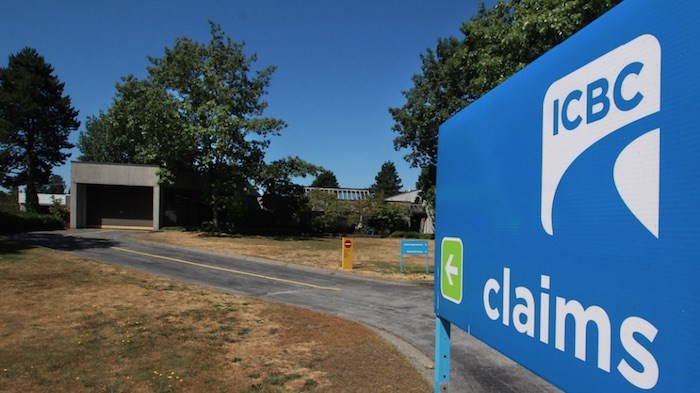 ICBC. BIV file photo.
ICBC. BIV file photo.
B.C.’s government should focus on fixing ICBC’s management problems and changing poor driving behaviour to cut costs instead of blaming lawyers for trial costs, the Trial Lawyers Association of B.C. says.
B.C. Supreme Court last week told Victoria its changes to court rules in an attempt to cut vehicle accident case costs through limiting expert evidence in trials are unconstitutional.
Attorney General David Eby said the decision could cost ICBC $400 million. He said one in four dollars goes to legal costs.
“You’re looking at half a billion dollars in terms of just lawyers’ fees alone that are paid for out of premiums of British Columbians. Clearly there is room for improvement in terms of the efficiency in how disputes are resolved.”
He said part of reducing costs is moving disputes less than $50,000 to a civil resolution tribunal rather than going to supreme court
However, association president Ron Nairne said the $400 million number is impossible to know. He said the government had taken projected savings and booked them into this fiscal year.
Chief Justice Christopher Hinkson said in his decision Eby’s move encroached on the court's jurisdiction to control its process.
The association argued before Hinkson that the rule change would deny litigants the right of access to the court because the legislative measure created undue hardship for litigants in obtaining access to justice.
Now, the association said the government is correct to point to raising claims costs as one driver for additional costs – but not the only one. It said it's the rates of accidents driving claims.
“Lawyers are not responsible for determining the value of a claim; the courts are. And the pressure of court decisions is what obliges ICBC and plaintiff’s counsel to seek mediated middle ground and avoid going to court, which is a costlier process,” the association said in a statement.
Nairne said it’s ICBC that drives people to lawyers and into the courts through poor management of claims in the first place.
He cited the case of one client who was seeking a claim of $30,000 through the insurer but wound up getting $400,000 in court.
He said experts are needed for clients to make their cases if they are forced to go before a judge. Each expert would testify about a different issue such as injuries, retraining, rehabilitation and other things, he said.
“These are not isolated examples,” Nairne said. “It’s just the way ICBC is. They’re just very poor at recognizing legitimate claims.”
Eby said once people go to court, “the costs go through the roof.”
Eby said Nov. 23, 2018, the provincial auto insurer saw a $1.3 billion net loss in 2017-18 with an expected loss of $890 million this fiscal year. He laid some blame on lawyers “strategically building injury claim values resulting in higher costs borne by ICBC ratepayers.”
The government argued denying the rule change would limit access to justice, saying such a ruling from the court would constitutionalize an expensive and inefficient trial procedure. The government said such a move would preclude legislatures from modifying civil procedure to respond to the reality of modern trial practice to better serve the goals of accessible dispute resolution.
Nairne said he found the government’s take disappointing.
“It’s ironic that someone who was the executive director of the B.C. Civil Liberties Association [Eby] winds up introducing something that is unconstitutional,” Nairne said.


